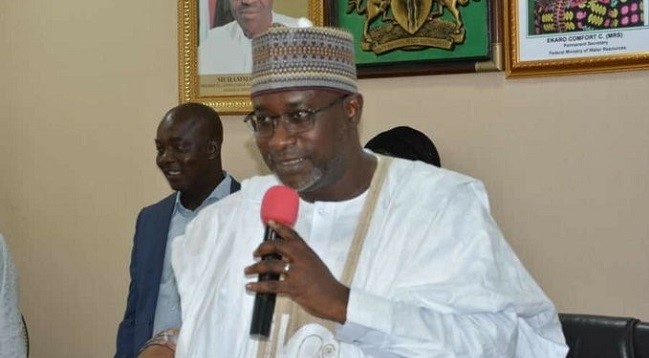The Federal Ministry of Water Resources says it is concerned that majority of Nigerians are still exposed to unsafe and contaminated water.

Mr Emmanuel Awe, the Director, Water Quality Control and Sanitation in the ministry, said this on Tuesday, March 3, 2020 in Enugu, Enugu State during a workshop on Water Safety Plan (WSP) for states in the South East.
Awe was represented by the Deputy Director, Water Quality Surveillance, Mrs Rukayyah Bako.
The director said that available statistics were not favourable to the country’s quest of achieving the Sustainable Development Goals (SDGs) with a standalone Goal 6 for water and sanitation.
He said that it had become imperative for all water service providers including state water agencies and community water committees to develop a WSP in their drinking water supply system.
“This will ensure the minimisation or complete eradication of contamination across the water service delivery chain.
“We are also aware that Nigeria joined comity of 193 nations in putting in place SDGs with a standalone Goal 6 for water to ensure availability and sustainable management of water and sanitation for all by 2030.
“The targets 6.1 and 6.2 for water supply and sanitation have more stringent clause of delivering them as safely managed,” he said.
According to Awe, target 6.3 is strictly on improving water quality by reducing pollution, eliminating dumping and minimising release of hazardous chemicals and materials, halving the proportion of untreated waste water.
He said that Nigeria had not fared too well in the provision of uncontaminated water as could be shown in a recent survey.
He said that a Multiple Indicator Cluster Survey conducted in 36 states and the FCT was quite revealing.
“The survey showed that percentage of household drinking water contaminated with E.coli in the homes and at the sources are 90.8 per cent and 77.3 per cent respectively.
“Another data from WASH National Outcome Routine Monitoring in 2018 showed a marginal increase in access to improved water supply to 67.9 per cent with only 3.7 per cent meeting safely managed drinking water services.
“This implies that 96.3 per cent are yet to achieve the target,” he said.
Awe said that the Nigerian Standard for Drinking Water Quality (NIS:554:2015), especially clause 3.24 stipulates that all water service providers must develop a WSP.
An expert, Dr Grace Oluwasanya in a lecture, said that over 80 per cent of the world’s diseases were caused by contaminated water.
Oluwasanya is the acting Head, Department of Water Resources Management and Agro-Meterology, Federal University of Agriculture, Abeokuta.
She said that WSP was introduced in 2004 in the global guidance to preserve public health and ensure that people did not get sick arising from the use of water released by water agencies.
She said that WSP aimed at ensuring safe drinking water through good water supply practice preventing contamination at water sources and preventing re-contamination in distribution and household handling.
The don expressed worry that most water sources were either contaminated by excreta through open defecation, illegal connections or by animal or birds that perch on water tanks.
Oluwasanya appealed to governors of the South East to provide good potable water to their people.
